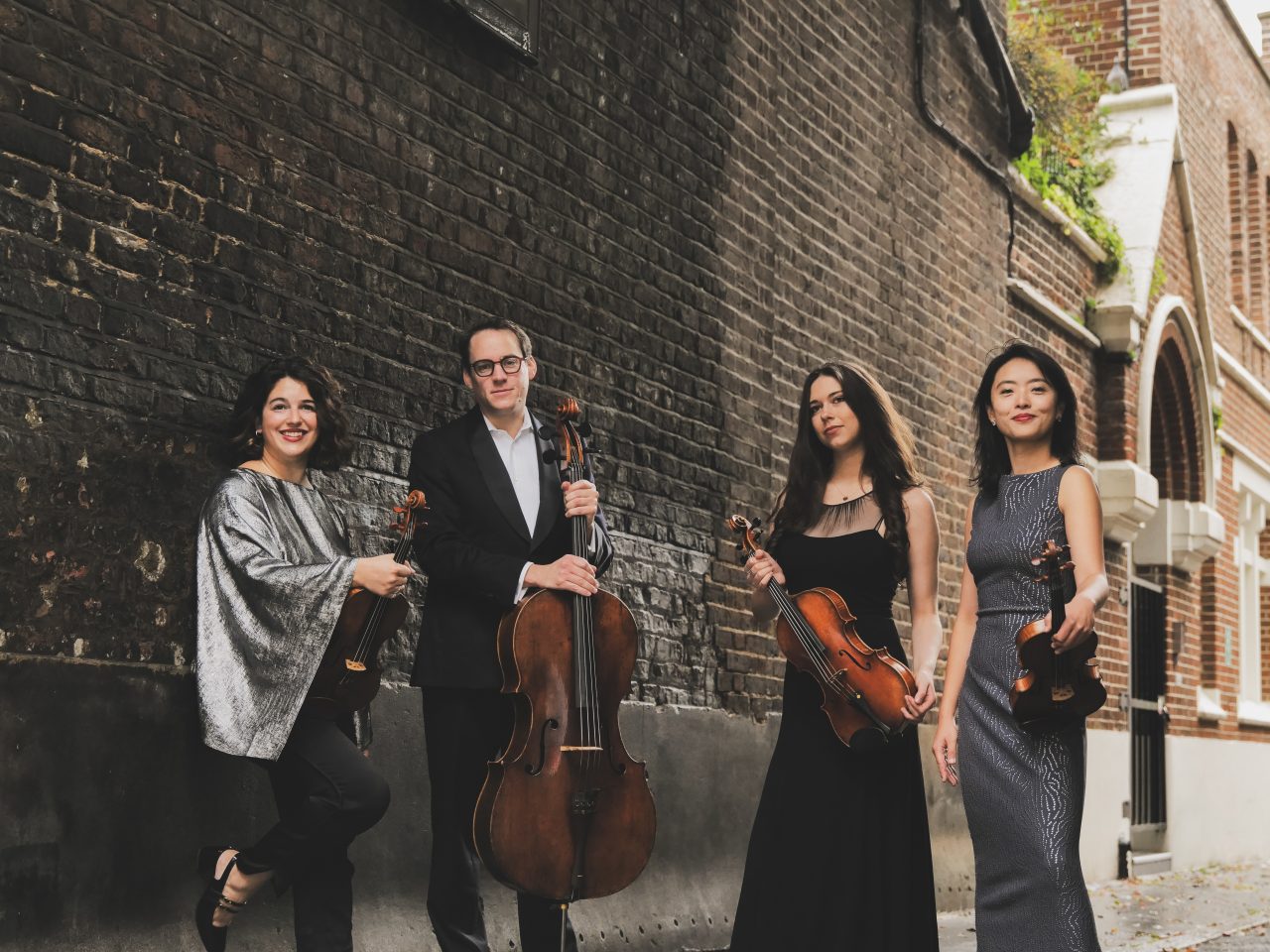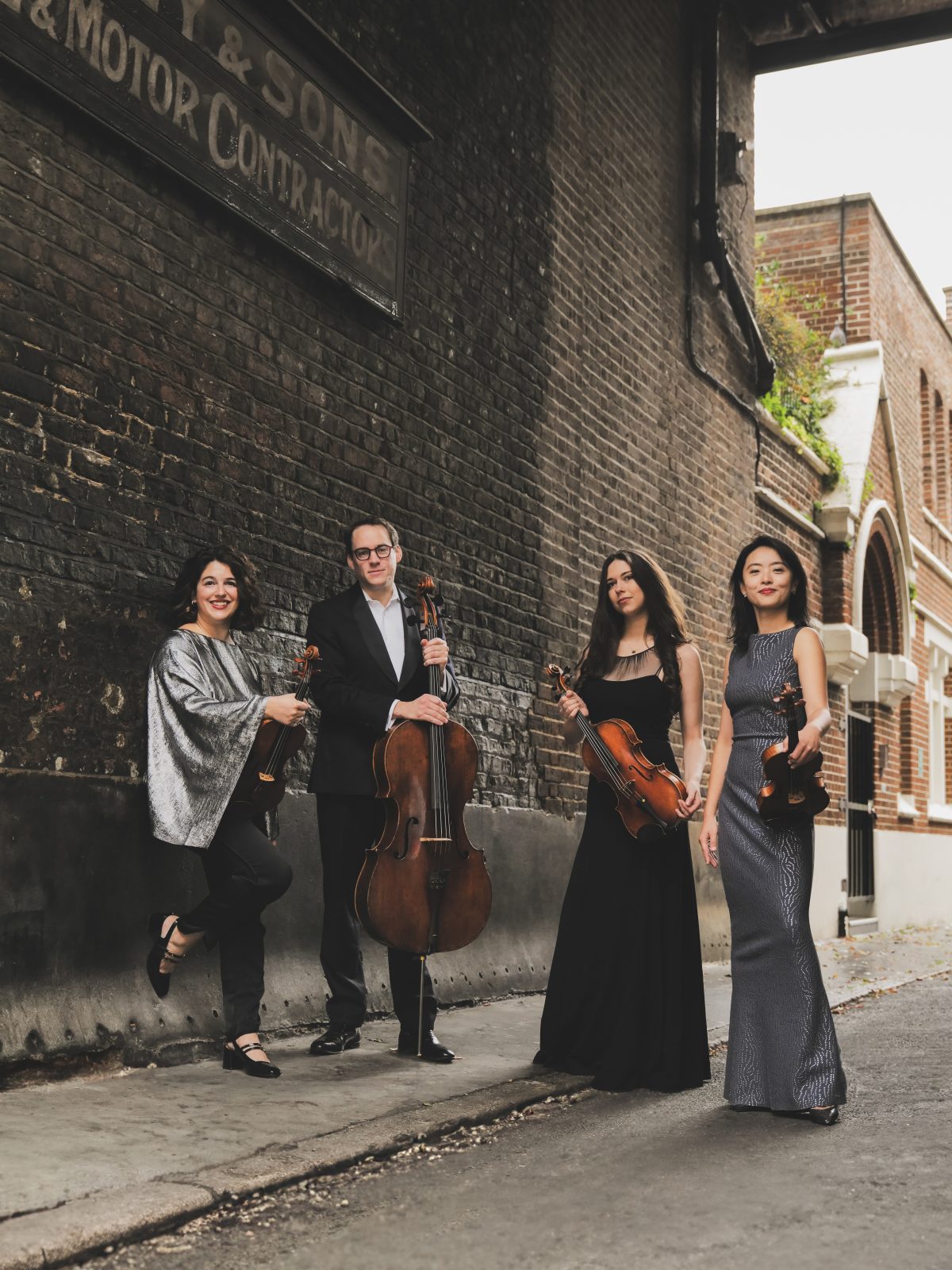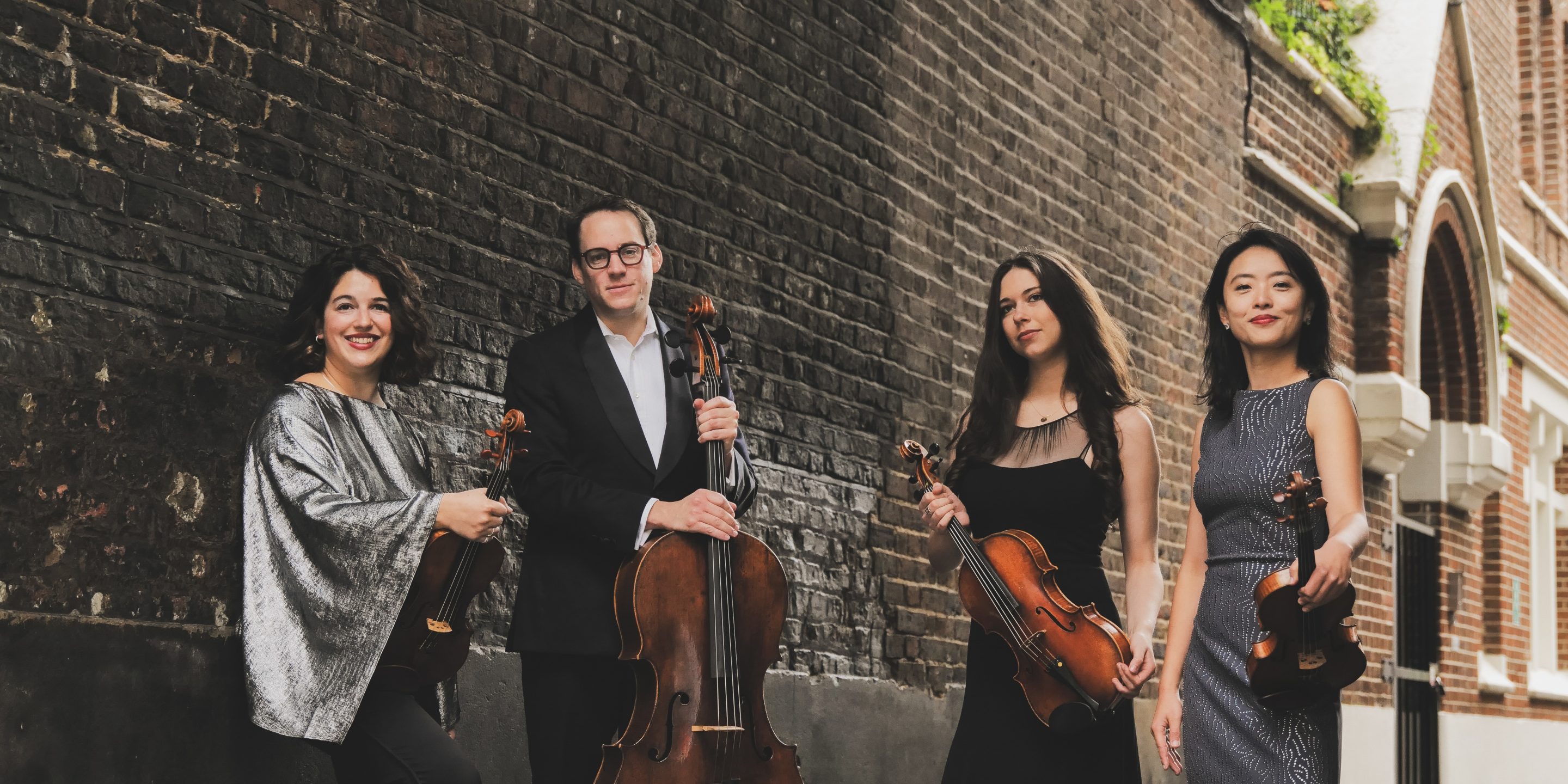The co-founder of the Doric String Quartet explains the change in line-up of one of WMC’s best-loved ensembles
Your concert in Autumn 2024 was postponed to this November, as you had a change in personnel. Tell us about the new members.
Our new first violinist is Maia Cabeza. She is an Argentinian-American violinist who currently resides in Berlin. She has a very busy life as a violinist, including being the leader of the Aurora Orchestra and the principal second violin in the Chamber Orchestra of Europe. Maia is a gorgeous musician, and I think it’s always been a dream of hers to be in a string quartet. She brings such energy and interpretative insight.
Our new violist is Emma Wernig, who is of Austrian and German heritage, was born in Los Angeles, grew up in the United States, and moved to Berlin in her early 20s to study. She is a formidable violist and musician, and like Maia, has also always wanted to be part of a string quartet. I met her a few years ago as she came to the festival on the Isle of Mull which the Doric String Quartet was running. She has also appeared as part of a quintet with the old quartet lineup, so she’s very much a familiar person in the Doric world.
What was behind the change?
As WMC audiences will know, it’s not uncommon for a string quartet to change its members – but to have two changes at the same time, over the summer of 2024, is quite unusual. In this case, Alex Redington, our old first violinist and other founding member alongside me, had been in the quartet for 25 years. The life as a first violinist is very intense, and the fiendishly difficult parts that a first violin has, combined with the busy concert schedules, was beginning to take its toll on his home life and health. So, he came to the realisation that he needed to stop playing in the quartet. He is still performing, but also teaching, and has just taken up a position as Head of Strings at the Purcell School. Alex is deeply committed to education and is really trying to influence and inspire those younger musicians.
Hélène Clement, our former violist, had been in the quartet for twelve years, and when Alex made his decision to leave, she felt that the time was right for her to take a different course too. Hélène moved to Newcastle, where her partner lives, and is doing a huge amount of freelance work including chamber music, but also some orchestral work as well. She’s really exploring different parts of the music world that she couldn’t engage with when she was in the quartet.
What’s it like building a relationship with new players in a quartet?
It’s like building a relationship in a romantic sense. It’s very, very similar. You need time to get to know each other, but also to get to know deep, personal stuff about each other, and understanding how we work as musicians. We also need to know how we work as people, and what we need from each other in this sort of four-way relationship: how we learn to read the signs of how we want to express as musicians and think about music, how we all behave in rehearsals and what makes people happy, as well as what makes people unhappy as well. It’s a fascinating process but so far, it’s been nothing but a very, very happy one for us.
How have performances been with the new ensemble?
Straight from the first concert we really felt, wow, this is an amazing new group. It has a lot of the similarities to how other groups always been. We share a lot of the same priorities in music, and our taste is very, very similar. When appointing new members, Ying and I didn’t want to find two totally different people who think about music in a totally different way. You’re really searching to find people who speak a similar musical language, so that’s really, really important.
What are the distinctive qualities that make the Doric String Quartet special?
The things that are the hallmarks of the Doric approach to music are real deep searching in the score, trying to create very vivid performances, dramatic contrasts that are deeply refined, but also unashamedly expressive and emotional. We really try to never just play it safe. These are things that we really found that Maia and Emma were excited to join and to expand on. I’m deeply passionate about finding more meaning in these amazing pieces we get to play. I think very, very carefully about how we interpret a great Beethoven quartet for example, still being very led by the harmony, which is a thing that we’ve always done as a group. We always allow the tension and release in the harmony of the music to guide fluctuation and flexibility, but also try to create performances that move an audience and engage and challenge, but also are just exciting and deeply rewarding for both of us, as players and the audience.
What does WMC mean to you and the Doric Quartet?
I’ve been coming to WMC now for a very long time, I think 2001 was our first visit. I feel I have a very deep and long relationship with WMC and the audience there. It’s always an enjoyable concert experience and the Auditorium is amazing. It’s lovely to know that you’re playing to a lot of the same ears each time, and it’s a very, very rare thing to be able to say you come every year to the same concert hall and have built up an audience over the years. We hope that we can keep on coming back to the music centre for many years to come.
Please note that this programme has been changed by the artist since this piece was published. The new programme is as follows:
BEETHOVEN String Quartet No 3 in D major Op 18 No 3
HAYDN String Quartet in F minor Op 20 No 5
BEETHOVEN String Quartet No 9 in C major Op 59 No 3
We’re recording the two Beethoven quartets in December, so it’s by no means a warm-up concert for that, but it’s a part along the journey as we record all of the Beethoven quartets. I think it should be a glorious programme, and we can’t wait to be back with you all, especially as we missed last year as we were going through all these changes. We’re really so thrilled to be able to come back to Bradford-on-Avon.



